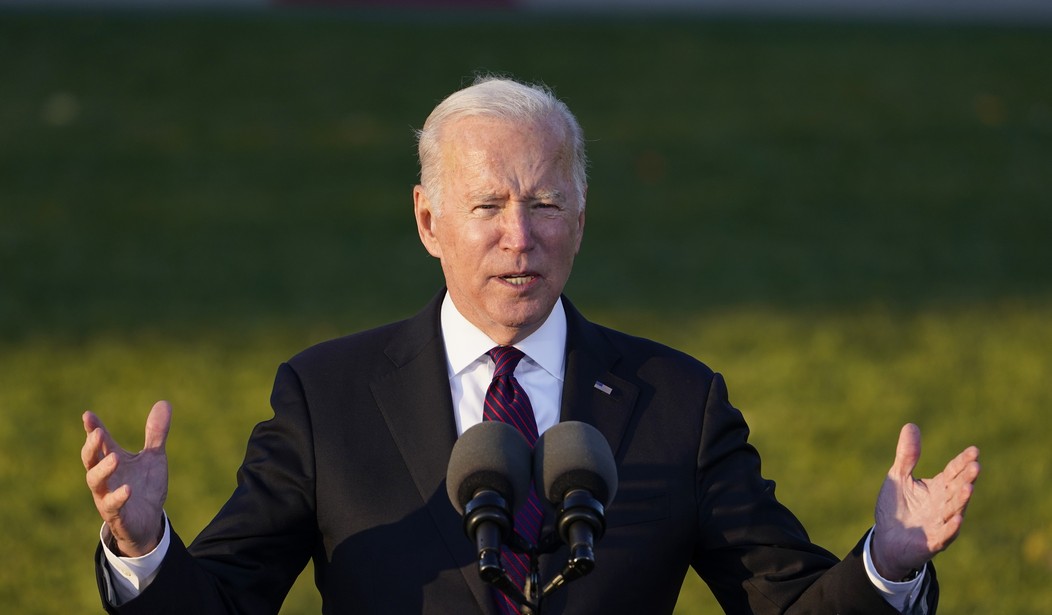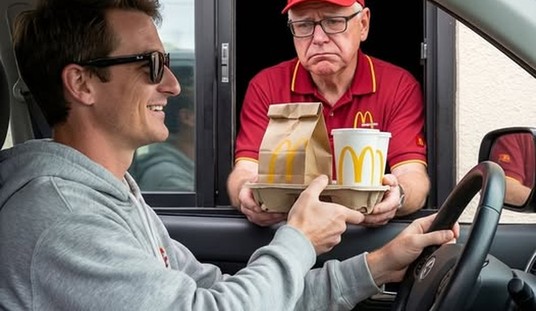On the day the OSHA mandate was unveiled in November, I wrote that there’s a small chance it would never go into effect. The fact that the feds delayed implementation until January 4 right off the bat was a concession to business owners who feared that if the mandate took effect sooner, hardcore anti-vax employees would quit and they’d be short-staffed before the holidays.
Which would be a problem, since many businesses are already short-staffed.
So the White House threw them a bone, postponing the mandate until the new year. Then, later in November, the White House delayed a separate mandate for unvaccinated federal workers until next year as well. Again, Biden seemed to be acknowledging that there are important countervailing considerations to the imperative to get American workers vaxxed.
After reading this new announcement from Amtrak, I wonder if there’s still only a “small” chance that the mandate for private businesses never takes effect. Amtrak is a federal contractor subject to the separate mandate for that group but they’re seizing on the recent court rulings against the mandate to shift from requiring vaccination for employees to a vax-or-test option instead. Hmmmm:

Why did Amtrak back off? Simple — they were also facing a labor shortage if their remaining unvaxxed employees quit, a prospect that led them to warn passengers recently of potential service disruptions in January. Now that they’re no longer enforcing the mandate pending court challenges, service should remain on schedule.
It’s not just Amtrak. Disney announced a few weeks ago that they’d be “pausing” their vaccine mandate while litigation played out. That wasn’t wholly their decision: They were caught between a rock and a hard place legally due to Florida’s new laws imposing fines on businesses that required vaccines for workers without providing for certain exemptions. If Disney kept the mandate in place, they’d be violating state law. If they got rid of it, they’d be violating federal law. (As of early January.) So they took advantage of the political cover provided by the new Florida rules and the legal uncertainty surrounding Biden’s mandate to ease off their policy. Supposedly it’s only temporary, but the more companies choose to “pause” amid growing doubt about whether Biden’s mandate will be upheld by America’s judges, the more comfortable other CEOs will be in deciding to pause their mandates too. And suddenly the White House will be getting a very clear signal from American businesses that they’re not as gung ho as they once were about this policy.
The most noteworthy break from Biden’s mandate comes from hospitals. Again, this is a labor problem — potentially a dire one as Delta cases rise seasonally and Omicron cases explode.
Hospital operators including HCA Healthcare Inc. and Tenet Healthcare Corp. as well as nonprofits AdventHealth and the Cleveland Clinic are dropping the mandates. Labor costs in the industry have soared, and hospitals struggled to retain enough nurses, technicians and even janitors to handle higher hospitalizations in recent months as the Delta variant raged. Vaccine mandates have been a factor constraining the supply of healthcare workers, according to hospital executives, public-health authorities and nursing groups.
Many hospitals already struggled to find workers, including nurses, before the pandemic. The shortages were compounded by burnout among many medical workers and the lure of high pay rates offered to nurses who travel to hot spots on short-term contracts…
[Ballad Health CEO Alan] Levine said his company has about 14,000 employees, some 2,000 of whom are unvaccinated or didn’t request an exemption to the requirement. “That many people having to be terminated would have been devastating to our system,” Mr. Levine said.
What’s going on here?
I think it’s a combination of a few things, starting with the fact that some company mandates have already been so wildly successful that it’s more trouble than it’s worth to twist the arms of the few remaining holdouts. Amtrak’s statement notes that its employees had a roughly 50 percent vaccination rate when it imposed its mandate in August; as of today 95.7 percent are either vaxxed or have an accommodation. New York City’s civil work force went from 84 percent vaccinated in mid-October to 93 percent vaccinated a month later once a mandate was imposed, with the FDNY surging from 60 percent to 89 percent over the same period. Vaccine mandates work — on most employees.
But eventually you’ve plucked all but the highest-hanging fruit, the most hardcore anti-vax true believers who really will quit before they submit to the jab. At that point a business owner has to weigh whether the company can function effectively if it calls the bluff of those people and they walk away en masse. Faced with that scenario, Amtrak and an array of hospital operators decided that it wasn’t worth the bother. If a large majority of employees are immunized, that’s close enough to a win that it’s not worth pressing the issue and risking a crippling labor shortage.
And the more those labor shortages persist, the more anxious the White House will be about following through on enforcing the mandate in January. (Assuming courts allow it too, of course.) Others have already sensed that Team Joe might be looking for an exit strategy on the mandate. I wonder if numbers like this have caught their notice:

Americans are more supportive of businesses freely choosing to mandate vaccination for employees (54 support) but they don’t like the idea of legal penalties for those that refuse. Even a near majority of Democrats are leery of it, which may be part of the sentiment recently on the left that it’s time to return to something closer to pre-pandemic normalcy in daily life. If that feeling is growing among Dems, they may not have much of an appetite for Biden being a hard-ass about the mandate next month. Especially if supply-chain problems persist, driving inflation upward and further endangering the party’s congressional majorities.
Maybe this is how the mandate was designed to function all along, a bit of legal pressure from Uncle Sam to convince American workers that they’d soon be in trouble if they didn’t get vaxxed, which most of them quickly did, and then poof — the mandate’s gone before it ever acquired the force of law, its mission already (mostly) accomplished. I’ll leave you with this finding from a recent study on what happens when employees at nursing homes can’t be bothered to get vaccinated: “Estimates from our model suggest that if all the nursing homes in our sample had been in the highest quartile of staff vaccination coverage (82.7% on average), 4775 cases among residents (29% of the total during the study window), 7501 cases among staff (29% of the total), and 703 Covid-19–related deaths among residents (48% of the total) could possibly have been prevented.”








Join the conversation as a VIP Member